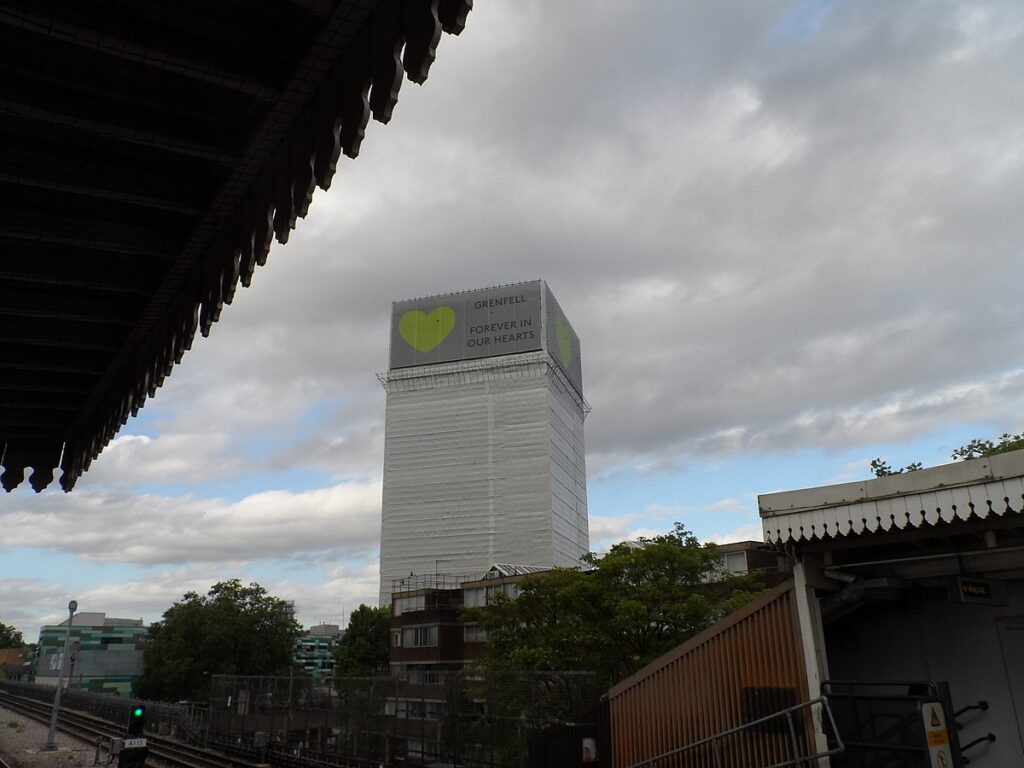Words by Grace Curtis
On 19 October, a former project manager on the Grenfell Tower refurbishment admitted that she had “binned” several notebooks that potentially contained important information relating to her work.
Claire Williams, who used to work for Grenfell landlords the Kensington and Chelsea Tenant Management Organisation (TMO), told a public inquiry into the cause of the fire that she thought the information was “documented elsewhere” and not indispensable.
The first phase of the Grenfell inquiry took place in 2018 and focussed on the factual narrative of the events on the night of 14 June , 2017. In October 2019, the inquiry Chairman published a report concluding that it was the cladding put on during a 2016 refurbishment that was to blame for the tragic West London fire in which 72 people died.
The current inquiry is examining how the blaze could have happened in the first place and who is responsible. This second phase of investigation is primarily focussed on how the refurbishment of the tower was carried out, taking evidence from TMO, Kensington and Chelsea Council and the private companies involved in the project.
The second phase of the inquiry began on Monday 6 July, following its suspension due to the Covid-19 pandemic. According to advocacy group Justice 4 Grenfell, due to coronavirus concerns, for the first time no physical access to proceedings is being given to bereaved survivors and residents.

Earlier in the inquiry proceedings, Peter Maddison, a former colleague of Ms Williams, disclosed several notebooks and diaries containing “material of the utmost relevance”. Inquiry lawyer Richard Millet QC said that Mr Maddison is “going to have to give clear and convincing explanations of why these documents were not disclosed to the inquiry and nor, so far as we can tell, to the Metropolitan police until now”.
According to the BBC, the chairman of the inquiry publicly stated that it was hard to understand why Ms Williams had “taken it upon herself” to do such a thing. Ms Williams stated that, although at the time of the disposal she knew that a public inquiry was “under foot”, she did not believe that she was removing critical evidence. She told the inquiry: “I would have looked at them and thought ‘there’s nothing here that isn’t in formal evidence’, and so I got rid of them.”
Ms William left her role in May 2018 and revealed to the inquiry that she may have thrown out “two or three notebooks” containing records dating back to 2013, as she “tidied up” her desk. She told the inquiry: “There was nothing underhand about it. I was clearing my desk, I looked and decided that everything that was in there was formally represented in minutes or other paperwork and it was of little value.”
Police have previously searched the offices of Ms William’s previous employer Kensington and Chelsea Tenant Management Organisation (TMO). The inquiry has access to official emails and meeting minutes. However, hand-written notes, such as the ones binned by Williams, could potentially reveal crucial details about decisions taken during the fatal refurbishments.
On 20 October there was an update to the case when the police announced they would be carrying out an investigation into whether a criminal offense took place when the documents were disposed of.
A Metropolitan Police Service spokesperson said that the force was “aware” of evidence presented to the inquiry about the notebooks and was waiting for the inquiry to pass it to officers. According to the police, “if relevant documentation has been disposed of or withheld from the criminal investigation, the MPS will seek to establish the facts and assess whether a criminal offence may have been committed”.
Alongside the Government inquiry, The Metropolitan Police is conducting its own concurrent investigation into possible crimes related to the Grenfell Tower fire, ranging from gross negligence manslaughter to health and safety offences.
The inquiry is continuing to hear evidence from Ms Williams.

